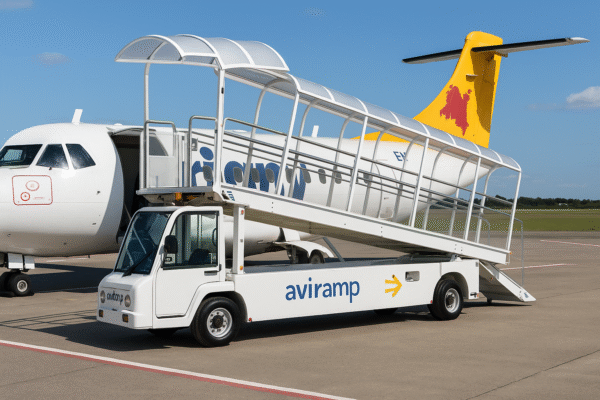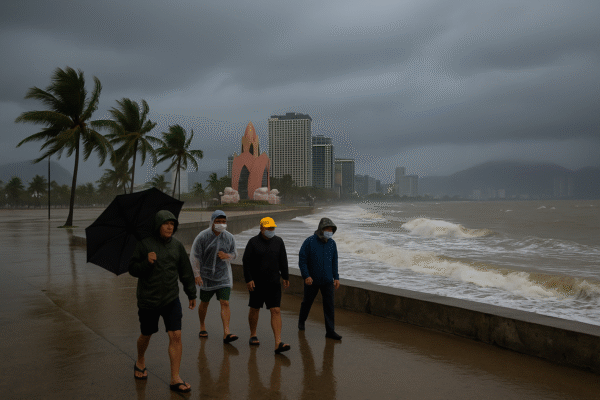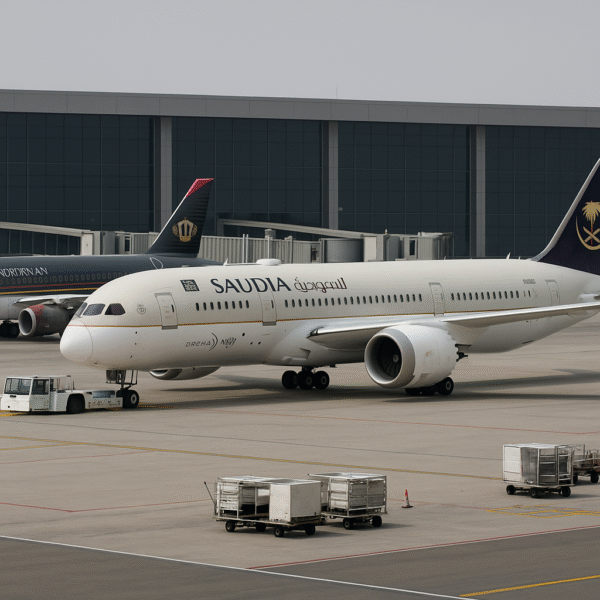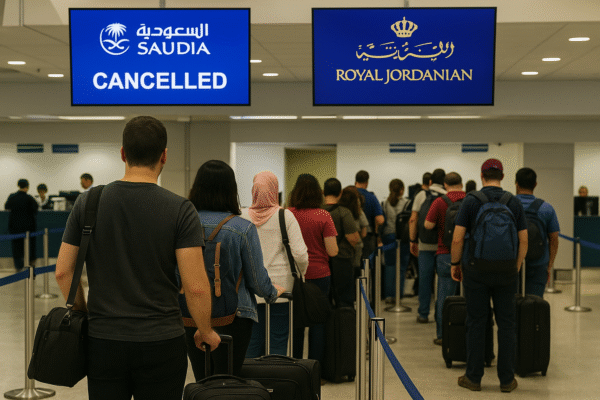As summer reaches its height, travelers across the Middle East are encountering unexpected turbulence—not in the skies, but on the ground—amid ongoing cancellations and delays by Saudia and Royal Jordanian Airlines. These disruptions span some of the region’s busiest flight corridors, stranding tourists, business travelers, and transit passengers alike.
Saudia’s Ripples in Saudi Travel
Saudia has been forced to cancel five of its flights today while delaying 32 more—a sharp disruption across domestic and international routes connecting Saudi Arabia to Greece, Turkey, and Jordan. Key hubs affected include Riyadh, Jeddah, and Dhahran, with flights to and from Istanbul and within the Kingdom suspended or postponed. This spate of operational hiccups has left many passengers scrambling for alternatives and rebookings, particularly those en route to key tourist or business destinations. The airline attributes the disruptions to a mix of operational constraints and adverse weather conditions—factors increasingly common in the region’s high-traffic corridors.
Royal Jordanian’s Extended Route Setbacks
Not to be outpaced, Royal Jordanian is also grappling with severe service interruptions. On August 22, the airline suspended flights on several routes across Amman, Athens, Istanbul, Karachi, and Dubai. Passengers heading into or out of Jordan, especially to Europe, South Asia, or the Gulf region, have been impacted by multiple cancellations and delays—some stretching beyond the typical pattern of disruptions. As with Saudia, Royal Jordanian points to operational challenges and unfavorable weather as central to the disruptions. With no immediate clarity on restored schedules, travelers are left in limbo.
Tourism & Travel Impact
For visitors planning tours of Saudi Arabia’s modern cities or Jordan’s rich archaeological sites, this is a critical moment. Summer travelers eager to explore landmarks like Al-Masmak Fort, Petra, or the Dead Sea now face added strain in their itinerary. Those using Istanbul or Athens as international layovers must be ready for significant delays or rebooking stress. Business travelers attending conferences or meetings in the region are also caught in the ripple, with tight schedules jeopardized by unpredictability.
Broader Aviation Pressures
These operational breakdowns didn’t appear in isolation. Regional carriers have been adjusting flight paths and services, prompted by a mix of staffing challenges, weather disruptions, and shifting airspace restrictions. While global carriers respond differently, the compounded effect on regional airlines has been among the most visible.
Traveler Tips & Next Steps
If your trip intersects with Saudia or Royal Jordanian’s routes during this period, here’s how to stay ahead:
- Check flights regularly via the airlines’ official websites or mobile apps. Many updates are posted in real time.
- Contact customer support immediately. Both airlines are offering rebooking, refunds, or e-credits. A quick call or visit could spare you long airport holds.
- Explore alternative airlines or routes. Carriers like Turkish Airlines, Emirates, and EgyptAir may offer alternate connections—though availability can be limited due to regional demand.
- Review your travel insurance. Ensure your policy covers delays and cancellations; in many cases, discretionary delays like weather or operational issues may be reimbursed.
- Stay flexible. Whether you’re traveling for leisure or business, expect schedule changes and leave buffer days where possible.
Looking Ahead for Travelers
Though troubling, these disruptions may ease as airlines adapt and weather conditions improve. Still, in the interim, flexibility remains key. Whether you’re headed to the corporate skyscrapers of Riyadh, the ancient wonders of Petra, or the vibrant markets of Istanbul, staying vigilant and informed will keep your journey as seamless as possible.
Keep your plans agile, monitor updates closely, and don’t hesitate to delegate your flight troubles to airline professionals. The region remains vast, welcoming, and full of discovery—don’t let temporary turbulence ground your travel ambitions.
For more travel news like this, keep reading Global Travel Wire















